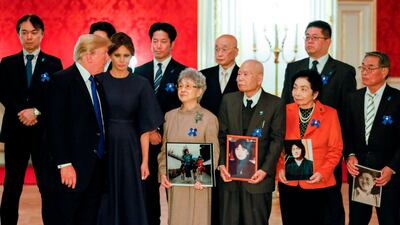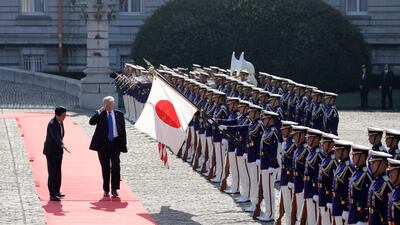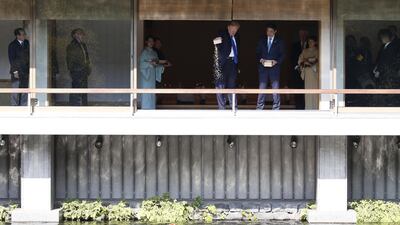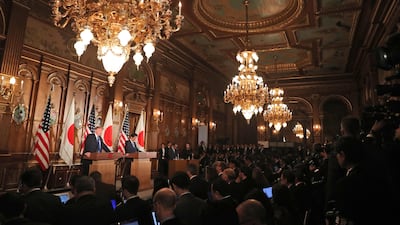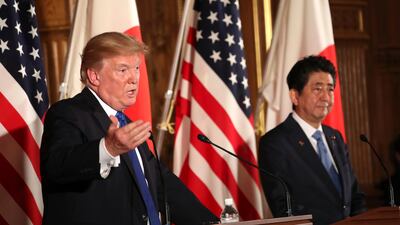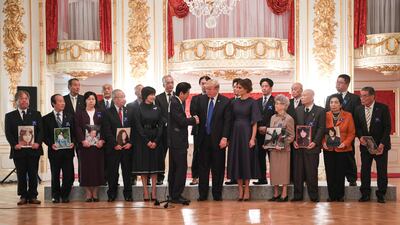Family members of Japanese abducted by North Korea met US president Donald Trump on Monday and welcomed his sympathy for their "very sad" plight, but said it meant nothing unless it led to action to bring home their loved ones.
President Trump has incorporated into his attacks on Pyongyang the story of Megumi Yokota, who was 13 when she was snatched off a lonely beach by North Korean agents 40 years ago. He mentioned her in a speech at the United Nations in September.
For his part, Japanese prime minister Shinzo Abe has said he will not rest until the return of all 13 of those Pyongyang says were kidnapped in the 1970s and 1980s to train spies, making the issue a keystone of his political career.
On Monday, Mr Trump became the third US president to meet Megumi's mother Sakie. He also met the relatives of seven other abductees Pyongyang says are dead — like Megumi, who hanged herself, according to North Korea.
At his joint press conference with Mr Abe, Mr Trump called the abductions "a very, very sad thing." He added, "We'll work together and see if we can do something, now the spotlight is on. Perhaps the regime itself would send them back. I think it would be a tremendous signal if Kim Jong Un would send them back."
The abductions happened during a six-year period between 1977 and 1983, when a number of citizens disappeared from coastal areas of Japan. The kidnappings were apparently opportunistic, carried out by operatives lying in wait. Some were abducted to teach Japanese language and culture at North Korean soy schools. Older victims were also abducted for the purpose of taking their identities and it is believed they were killed immediately. North Korea has officially admitted abducting 13 Japanese but the true number could be much higher.
Megumi's mother and younger twin brothers were later part of a news conference that welcomed Mr Trump's attention on their plight with caution, given that decades have passed with nothing done, not even by Mr Abe's government.
"It seemed the president listened carefully to all our stories and was impressed," said Koichiro Iizuka, an infant abandoned in a creche when his mother, Yaeko Taguchi, was abducted in 1978. "But if this is all that comes of this meeting, it's absolutely outrageous," he added. "It's how we face the previous neglect and take action that's important."
The families can do little, said Megumi's mother, now 81 and visibly frail. "This is an issue of politics, of diplomacy," she said. "All we can say is: please help them."
